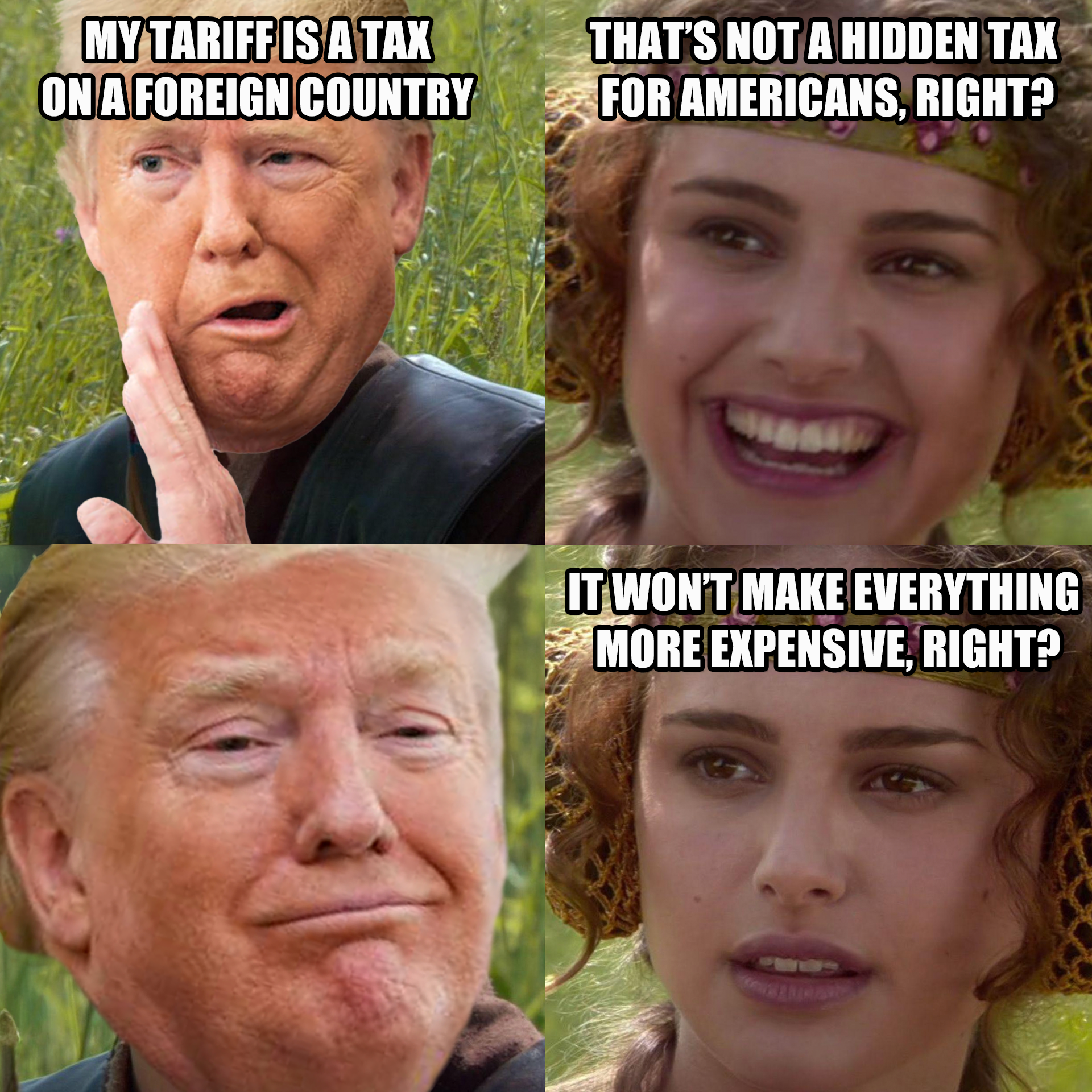this post was submitted on 24 Sep 2024
673 points (97.5% liked)
Political Memes
5686 readers
2059 users here now
Welcome to politcal memes!
These are our rules:
Be civil
Jokes are okay, but don’t intentionally harass or disturb any member of our community. Sexism, racism and bigotry are not allowed. Good faith argumentation only. No posts discouraging people to vote or shaming people for voting.
No misinformation
Don’t post any intentional misinformation. When asked by mods, provide sources for any claims you make.
Posts should be memes
Random pictures do not qualify as memes. Relevance to politics is required.
No bots, spam or self-promotion
Follow instance rules, ask for your bot to be allowed on this community.
founded 2 years ago
MODERATORS
you are viewing a single comment's thread
view the rest of the comments
view the rest of the comments

I mean it's an inherently anti-consumer policy, the question is if that hit to consumer choice is worth it for the manufacturers that are getting a leg up, or to kneecap a foreign adversary who's making a play at market capture.
Trump doesn't have anything close to the market awareness to make these judgement calls with any degree of accuracy outside of tariffing literally everything that's imported and hoping it hits some of the right spots.
I mean, tariffs can definitely make sense if a country is making extremely cheap alternatives that destroy the local industry or if another country sells insanely cheap options to get a monopoly on the market to then increase the price.
Problem is that that country is miles ahead in the technology of the other country's local industry and has fine do through economies of scale while the other country keeps on pumping out high margin versions of their inferior product
There is an economic argument that goods are selling at the clearing rate. We sell widgets for $5 because that's the price point at which we move the most number of widgets and therefore generate the most revenue.
If we start taxing imported widgets by $1/ea, the retailer has to choose between stocking the domestic widget (expensive but no tax) versus the imported widget (cheap but taxed). But they still want to maximize the units sold, so they won't raise the price above $5.
There is a counterargument that tariffs will cause importers to redirect their supply to other countries. That drives the gross inventory down over time and raises the clearing price above $5.
But, broadly speaking, tariffs will raise the price of goods that we can't efficiently make in the US while the price of goods we can make will remain largely unchanged. So this then raises the question, What Do We Make in the United States Today?
Dumb decisions, people nervous, that sort of thing....
The question is: what should we be making in the US?
Tariffs can give domestic manufacturing a temporary reprieve from lower priced foreign suppliers, to build or improve domestic manufacturing.
They can also be used to try to punish other countries for unfair trading practices
For example
I’m not convinced that they’ve put this much thought into it, nor that domestic manufacturers will use this window of opportunity
The Chinese government subsidies are the same set of public improvements and business incentives every industrial country provides to build up domestic infrastructure. They're significantly less generous than the Big Three Bailouts that Bush, Obama, Trump, and Biden all had to extend at least once in each of their terms.
But this is also an "unfair" subsidy, isn't it?
Foreign car companies - BYD being one, but Hyundai, Toyota, and Volkswagen certainly piling on the bandwagon - have invested far more money in small vehicle production than US contemporaries. Consequently, they tend to produce vehicles with better fuel economy at a much cheaper price point.
At the end of the day, that's what this tariff is penalizing.